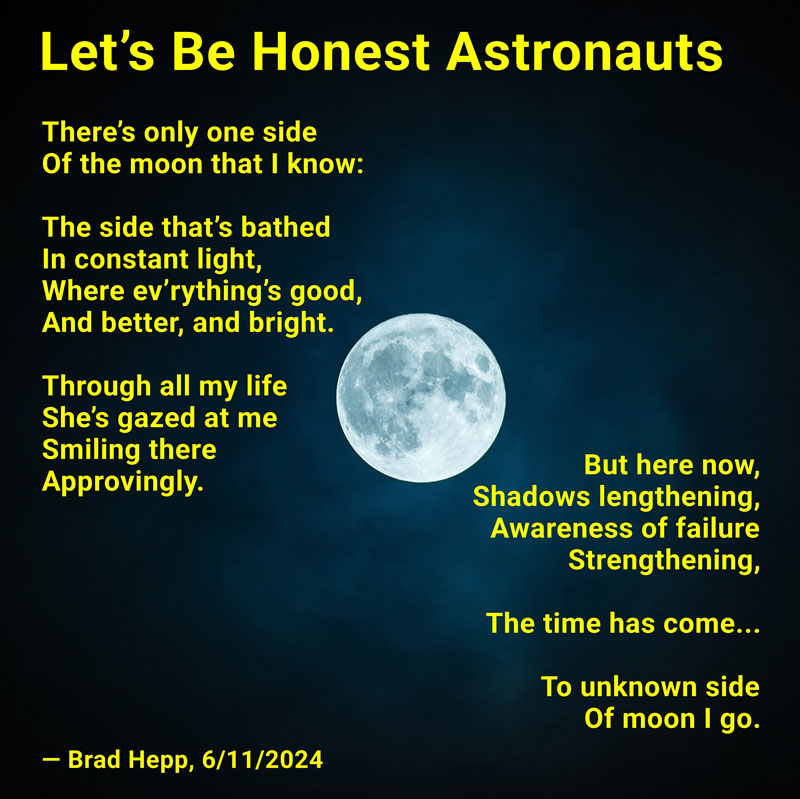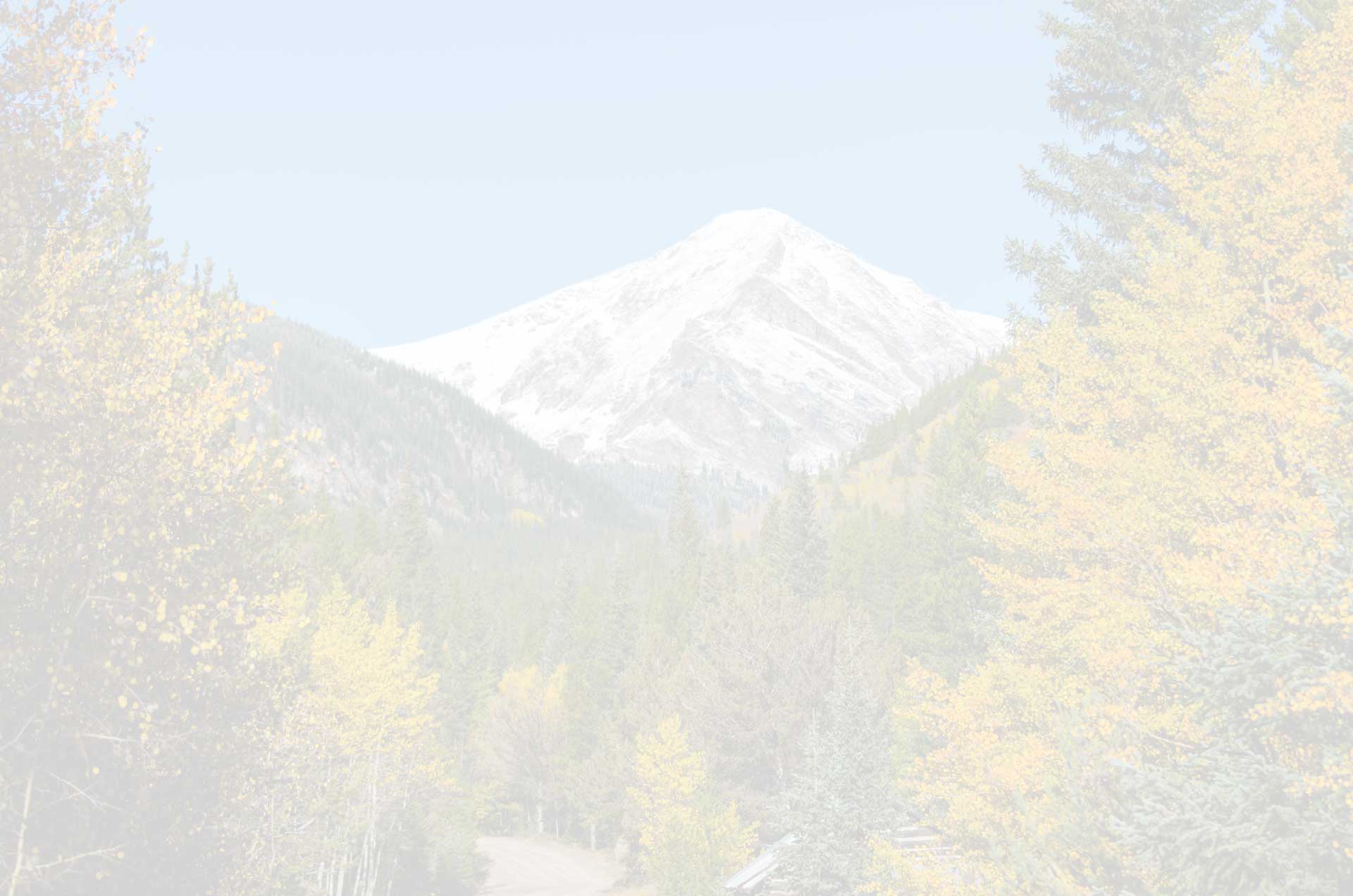(if you are viewing this via email, the website has a recording of this poem and commentary; click the title above)

Commentary
This may appear to be a depressing poem. Let me explain why it isn’t really….
A dear friend treated me to supper last night. This morning, I woke up and immediately wrote down what I had said to him, except that I put it in verse. Here goes:
TO UNKNOWN SIDE OF MOON I GO
Over the last several years, slowly at first, but gathering speed as time passes, I have been changing. At least I have been examining my life more carefully, and laying myself open to change.
RACISM
First, I became aware of my own racism. In 2016, I was being considered for a job that would have involved ministering in the Hispanic world. But even though I am a missionary kid born in Mexico, I had by my mid-fifties developed significant antagonism toward the growing population of Hispanics in the US. We can all thank God that job didn’t pan out. Imagine the hypocrisy!
Just after that, I went full-time with my web design business. In all the spare time I had, I began taking long daily walks. On those walks, I listened to many books, including all of the Bible (several times through). I’d walk around White Rock Lake, listening, and pondering. I also began observing how I responded to each person that I encountered on the trail. Why was my heart immediately warm toward this person, but cold and distrustful toward that person? I noticed–once again–that racism was definitely involved.
SELFISHNESS
Acknowledging and inspecting my antagonism toward Hispanics revealed a deep vein of selfishness in me. At one point, I had to admit, “I don’t like this influx of Hispanics in the US because it’s a drag on the economy.” In other words, I was thinking with my wallet–how a group of people affect my wealth–not with Jesus’ welcoming, hospitable love. (By the way, I wasn’t thinking very well in any case). It seemed obvious to me that I had to either follow Jesus or give up that way of thinking.
As the years passed, I began to see how that vein of selfishness was influencing my politics, my view of history, even my theology. It’s hard to be an honest interpreter of Scripture when you are motivated to find God giving you every advantage while denying it to others!
A SENSE OF SUPERIORITY
This brings me to something I was finally able to articulate to myself last night just as I walked across the parking lot to meet my friend in the restaurant. One of my biggest struggles in life is the temptation and tendency to think of myself as superior to many others in many ways: smarter, wiser, healthier, more discerning, more talented. Not, of course, superior to everyone around me… I’m arrogant, not stupid!
A LONG SLOW COURSE OF MEDICATION
When I recognized my selfishness and racism, I began reading extensively about the history of white supremacy in the US. There’s simply no way that I escaped inheriting some of the rottenness in that pervasive ideology! Talking with my friend at supper, I listed some of the authors I have read. As you read this list, you may be tempted to jump down my throat. But hear me out. The authors included Robin DiAngelo (White Fragility), Abram X Kendi (Stamped From the Beginning), Bryan Loritts (Insider Outsider), Jemar Tisby (How to Fight Racism), Luke Bobo (Race, Economics, and Apologetics), and Ta Nehisi Coates (We Were Eight Years in Power). With the exception of DiAngelo, these authors are all black men and skilled writers. Even if I question their analysis or solutions, I deeply appreciate their ability to articulate their perspective. Some of them are my brothers, and all are my friends in that regard. Reading these authors, and imbibing many related documentaries and podcasts has been like taking a long slow course of medication. I’m getting better, largely by understanding how bad off I am.
BACK TO THE POEM
The dark side of the moon is a hostile, unfamiliar environment. If the moon we see every night is smiling on us approvingly, the dark side of the moon is indifferent at best, scowling murderously at worst. In its metaphorical eyes, we are not great. In its metaphorical eyes, any notion that I am superior to anything or anyone is laughable.
HAVE I SAID ENOUGH?
If you go back and read the poem now, does it start to make sense? Can you see that it is hopeful, and not depressing? Let me know by commenting below!
[Note to my future self: I wrote this a day or two after watching an episode of The Crown, in which Prince Philip has a private interview with the Apollo 11 astronauts. Philip was experiencing a crisis at that point in his life, and he hoped that the astronauts would have some serious, helpful observations about life and faith. Alas, they were at that point just men of action, not contemplation.]
“Change” Poems:
Next: On The Ridge
